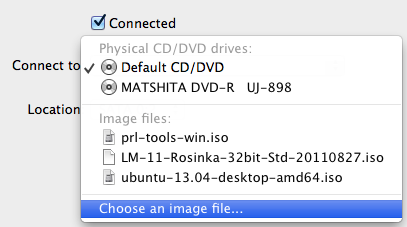Here is how you can install Windows 11 in Parallels on an M1 Mac using workarounds to bypass hardware checks for TPM 2.0. This guide only applies to Windows 11 on ARM. Parallels Desktop lets you configure your keyboard shortcuts to work the way you want both on your Mac and Windows. To activate a keyboard shortcut, simply press a key combination on your keyboard. You can also use these shortcuts by choosing Devices menu → Keyboard and selecting a key combination.
Parallels Desktop for Mac, if you’re not familiar, is the insanely integrated virtual machine software from Parallels. The ability to run Windows apps on the Mac desktop, files and folders that. Open Parallels Desktop.app from the Applications folder and choose File » New. Now you can create a new virtual machine for Mac, including a Windows VM on Mac. Get Windows from Microsoft or install freely available operating systems such as Ubuntu, Fedora, or other Linux systems supported by Parallels Desktop.
Right click
Click the right corner of your Apple mouse, or click with two fingers on your Apple trackpad. You can change this in Mouse preferences and Trackpad preferences.
Scroll, swipe, click
Settings for scroll direction, swipe gestures, and button assignments are also in Mouse and Trackpad preferences.
Close & resize windows
Buttons for closing, minimizing, and maximizing a window are in the upper-left corner of the window.
Change volume
Use the volume control in the menu bar, or use the volume keys on your Apple keyboard.
Change Mac settings
Looking for the Control Panel? Use System Preferences instead.
Open apps
You can also use Launchpad and the Dock to open your apps (programs).
Find files
Use Spotlight to quickly find and open apps, documents, and other files.
Browse for files
Looking for Windows File Explorer? Learn about the Finder.
Throw files away
Looking for the Recycle Bin? Use the Trash, which is in the Dock.
Rename files
Click the file once to select it, then press the Return key and type a new name. Press Return when done.
Preview files
Preview most files on your Mac using Quick Look. Click the file once to select it, then press Space bar.
Back up files
Time Machine keeps a copy of all your files, and it remembers how your system looked on any given day.
Keyboard shortcuts
Many Mac keyboard combinations use the Command (⌘) key. Learn more keys and keyboard shortcuts
Cut
Copy
Paste
Undo
Close window
Switch apps
Quit app
Forward delete

Find files
Force quit app

Take screenshot
Learn more
Windows Parallels Commands Download
- For more information to help you get to know your Mac, use the Help menu in the Finder menu bar.
- What’s it called on my Mac? includes additional Windows and Mac terms.